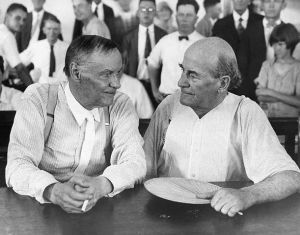Every now and then when I finish a book I have to sit back and take a long breath and reflect. Martin J. Blaser’s Missing microbes : how the overuse of antibiotics is fueling our modern plagues is one of those books. I requested it from LibraryThing.com’s Early Reviewer program as soon as I saw it offered. For the last few years I have been studying the last 200+ years in medical history. Germ theory has existed for only a little more than half of that time. I was interested in what Dr. Blaser considered missing microbes. I had also heard a story on NPR a few months ago that stuck in my head because of its ingenuity and grossness. Some people with severe digestive disorders have been treated with a , uh, well they have the gut bacteria from a healthy donor transported into their gut. It works, their symptoms clear up.
Blaser points out that all life started out microbial and slowly formed colonies that specialized into multicellular life, into more and more complex forms of life and that all that time the multicellular life co-existed with single cell life forms. Some of them are dangerous. If Vibrio cholerae takes up residence in your gut it produces a chemical that mimics one your body naturally uses to signal the intestinal walls to move water out of the body. Cholera caused such severe diarrhea, moving water out of the body into the gut, that it could kill a health person in less than a day. Luckily most of the microbes in and on our bodies are harmless or even helpful. At least one digests food we are unable to use into forms that we can use. How many microbes are there that provide us with benefits that we don’t know about?
The star of the book is Helicobacter pylori, a spiral shaped bacteria first discovered in the early days of germ theory and quickly forgotten about. It was found in everyone’s stomach and it was impossible to grow in the lab with the existing technology. Many years later it was rediscovered in the stomachs of some people and it was blamed for very bad things ranging from ulcers to stomach cancer. How did it go from being in everyone’s stomach in the late 19th century to only some stomachs in the mid to late 20th century? Wide spectrum antibiotics.
The book makes a very good case for the theory that our overuse of antibiotics, over prescribing and using in animal feed, is not only creating Multi Drug Resistant, MRD, bugs but it is killing off potentially helpful bacteria that has co-existed with human beings for ages. After demonstrating a correlation between acid reflux disease, which can progress into nasty throat cancer, and the lack of H. pylori Blaser asks if the modern rise in allergies, asthma, autism, obesity,* and type 1 diabetes are the result of a missing beneficial bacteria.
In my opinion in a hundred years this book will be considered a major turning point in medical science. I don’t know how the medical establishment will look at it today. There is so much money wrapped up in the status quo that any change, even for the better, will be resisted. I have never been a fan of hand sanitizer and after reading this I will question my doctor about the necessity of any antibiotics he offers me. You need to read this book.
* low dose antibiotics have been given to farm animals for over 50 years to speed their growth, antibiotics are undoubtedly one factor in the obesity problem.


 When I started reading “Summer for the gods: the Scopes trial and America’s continuing debate over science and religion” I thought that I knew something about the Scopes trial. As the author points out, most Americans feel that way. Edward J Larson, the author, is a professor at Pepperdine University. He has both a PhD in history and a law degree which should make him very qualified to write this book. For me the most important part of of the book was the “before” and “after” sections, the actual events of the trial turn out to be less surprising, and less important, than why it happened and what the results were.
When I started reading “Summer for the gods: the Scopes trial and America’s continuing debate over science and religion” I thought that I knew something about the Scopes trial. As the author points out, most Americans feel that way. Edward J Larson, the author, is a professor at Pepperdine University. He has both a PhD in history and a law degree which should make him very qualified to write this book. For me the most important part of of the book was the “before” and “after” sections, the actual events of the trial turn out to be less surprising, and less important, than why it happened and what the results were. On February 26th the Coursera class “Creative Problem Solving” opened. The lectures were sparse the first week, I assumed it was so we could quickly become involved in the weekly “Do Something Different” exercises. The first assignment looked interesting, eat something different or in a different way.
On February 26th the Coursera class “Creative Problem Solving” opened. The lectures were sparse the first week, I assumed it was so we could quickly become involved in the weekly “Do Something Different” exercises. The first assignment looked interesting, eat something different or in a different way.

